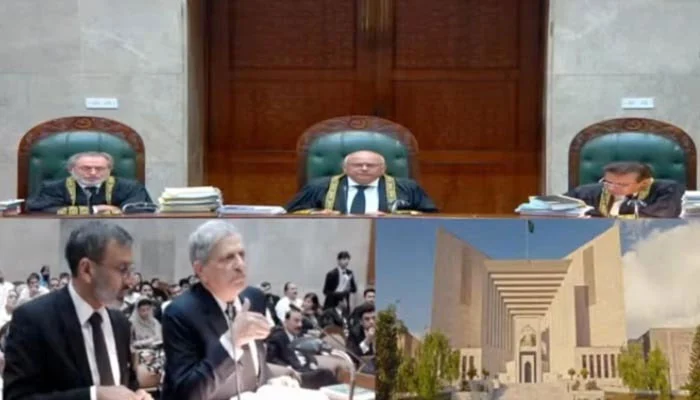In a landmark verdict that reshapes the post-election political landscape, the Supreme Court of Pakistan has ruled that Pakistan Tehreek-e-Insaf (PTI) is not eligible for reserved seats for women and minorities—dealing a critical blow to the party’s parliamentary ambitions.
The long-awaited judgment came from a 10-member constitutional bench headed by Justice Aminuddin Khan. In its brief order, the court accepted the review petitions filed by the Election Commission of Pakistan (ECP), Pakistan Muslim League-Nawaz (PML-N), and Pakistan Peoples Party (PPP), nullifying the Supreme Court’s earlier July 2024 decision that had temporarily favored PTI.
The roots of the issue trace back to the February 8 general elections, when more than 80 PTI-supported candidates contested as independents due to the party’s disqualification from using its electoral symbol. These independents later joined the Sunni Ittehad Council (SIC), a little-known religious party, hoping to secure PTI’s share of reserved seats through SIC.
However, the ECP rejected the move on March 4, citing that SIC had neither contested the elections independently nor submitted a priority list for the reserved seats—an essential requirement under Article 51(6) of the Constitution. This decision was upheld by the Peshawar High Court, and later challenged by SIC in the Supreme Court.
Initially, in July 2024, a narrow 8-5 majority in the apex court had ruled in favor of PTI, declaring that the denial of an election symbol could not bar a party from receiving its constitutional share of reserved seats.
But now, after months of hearings, that decision has been overturned. The court ruled that PTI’s alignment with SIC could not substitute the legal requirements for reserved seat allocation. The verdict emphasized procedural compliance and reinforced the ECP’s authority to regulate such allocations.
The fallout from this verdict is substantial. PTI, which was hoping to reclaim its political footing through these reserved seats, will now have to function with a smaller presence in both national and provincial legislatures. In contrast, the coalition government—comprising PML-N, PPP, JUI-F, and others—retains a decisive two-thirds majority in the National Assembly.
The case has underscored the importance of procedural discipline in Pakistan’s electoral system and set a precedent for future electoral alliances and legal interpretations of party status.



